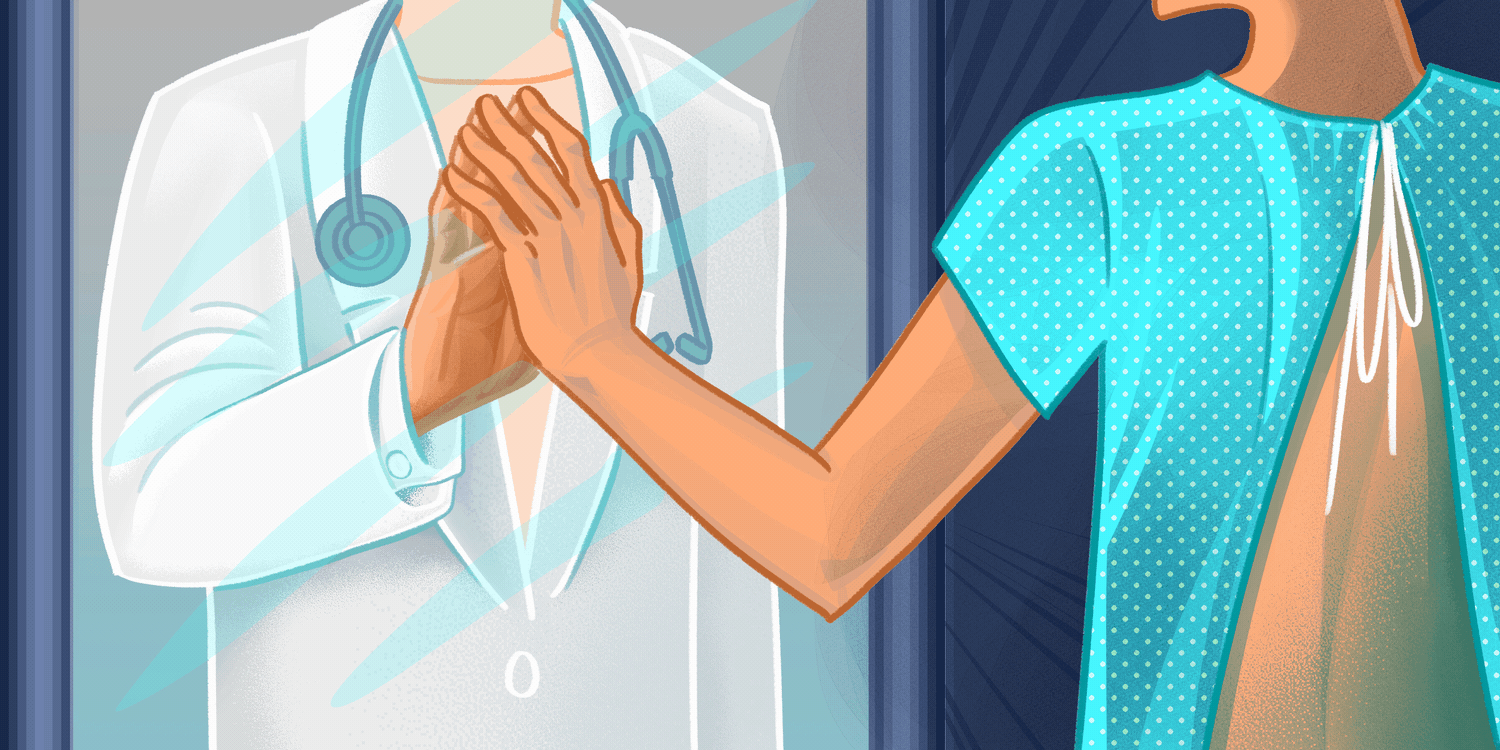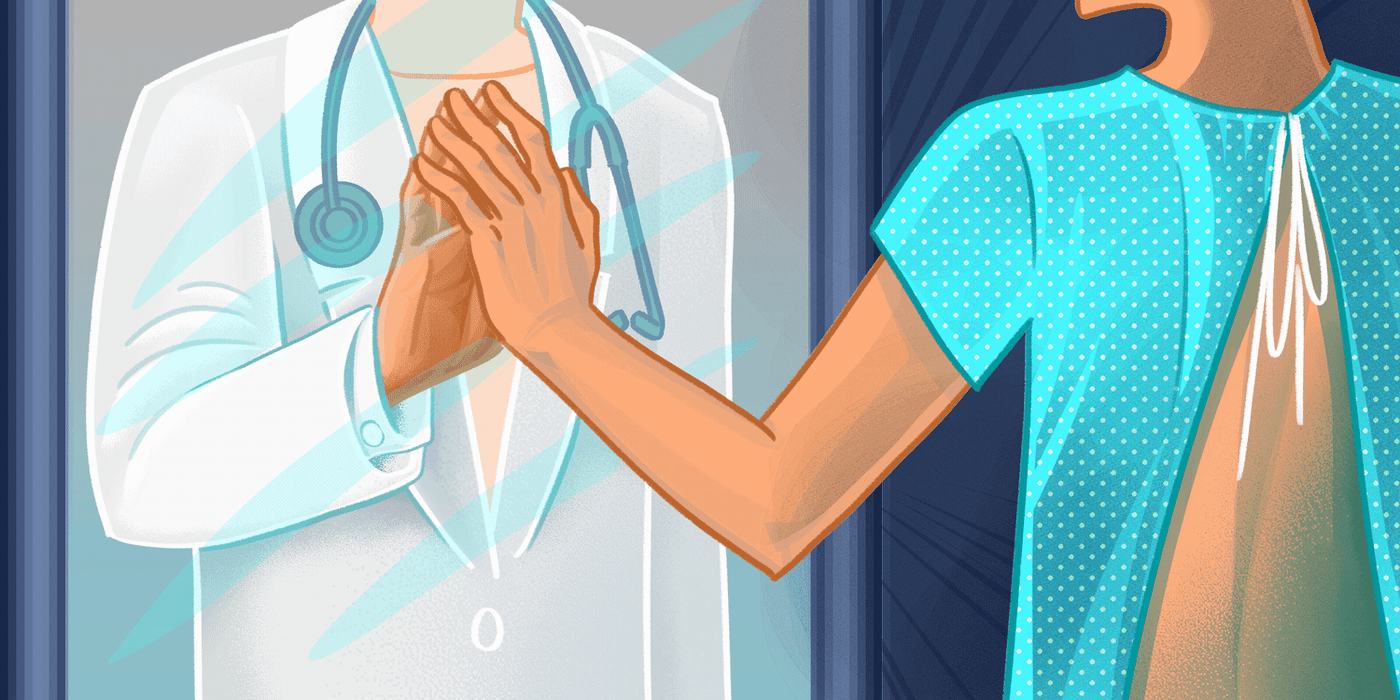
When I was a child, I used to sometimes close my eyes and try to convince myself that I was someplace else. I would lie on the carpet of our living room and block out the sights, sounds, and smells around me. I would imagine that I was lying on the floor of my grandmother’s flat in India as I had the previous summer, or in the soft sand of the playground as I had done the previous weekend, and the possibilities of who and where I was would shift in my mind. Then I would wake up, find myself at home, and be left with the exhilaration of having been momentarily elsewhere.
I don’t do that anymore, but I recently realized that I have replaced this with something similar. As a hospital medicine physician, I am exposed to the unfathomable suffering of others: bodies bloated with cancer, emaciated from substance use disorders, riddled with disease. Sometimes, surrounded by all this illness, I take a moment to pause and step outside of myself. In those moments, I see myself enveloped by those hospital sheets, struggling to breathe, my body broken. This comes naturally with some patients, like the physician I took care of last year with small children like mine who suddenly finds herself with metastatic cancer, or the son of Indian immigrants who rests in bed while his grief-stricken parents sit at his bedside reading Sanskrit prayers I have heard a thousand times from my own parents’ lips.
But this imagining is not as easy with patients whose life experience is further removed from my own. I try to see myself as my patient experiencing homelessness who is discharged to the streets, cold and neglected, trying to find a safe place for the night. Or I think about what it would be like to be my young patient with opioid use disorder, injecting substances into my veins just to feel normal. It is not as easy to put myself in their shoes. We identify with people whose experience is similar to our own. But the more I do this, the more I realize how close I am to a different reality. And though I cannot truly know what it is like to be in that bed or on those streets, the derealization hits me as it did when I was a child. My ego dissolves. I am myself, I am that patient in the bed, I am you.
Like many, I’ve become steeped in my own identity since the COVID-19 pandemic began. I am more of a mother than I have ever been, more of a doctor than I ever imagined myself to be. Everything I see and hear resonates with me painfully. When I see the images of masked and gowned physicians in New York, their faces etched with fatigue, I understand the helplessness of the moment they find themselves in. When I hear the accounts of parents balancing child care and work from home, I understand the frustration they are feeling. When I read stories about the immigrants who continue to work in essential jobs as they struggle financially despite fear of what contracting this illness will do to their families, their struggle resonates.
I have heard a lot recently about how the COVID-19 pandemic has exposed the cracks in our already fractured society. The ways in which race and poverty impact health have risen to the surface. As someone who has spent much of my career thinking about how to better care for vulnerable patients, with a recent focus on building systems for substance use management, I wonder if the time has come for us to put aside what resonates with us personally and take on a larger view. I live in a privileged, liberal community. When the stay-at-home orders were first implemented, there was a sense of compassionate unreality that pervaded people’s attitudes, like it was tragic that this was happening. But at the same time it seemed unbelievable that something like this could actually reach us. Maybe it’s time to accept that hardships have always been with us, that we have been protected by our privilege, but that TB is Ebola is COVID-19 and that none of us are immune to illness and adversity. Perhaps it’s time to accept a thousand realities other than our own, to dissolve our individual egos into the collective, and to realize that only if we accept that there is no difference between us and the vulnerable people around the world who suffer disproportionately from disease will we be able to implement the structural political and economic changes that are needed to achieve true health equity.
Click here to see more perspectives on COVID-19 from the Doximity network.
Click here for up-to-date news about COVID-19 on Doximity.
Illustration by April Brust







